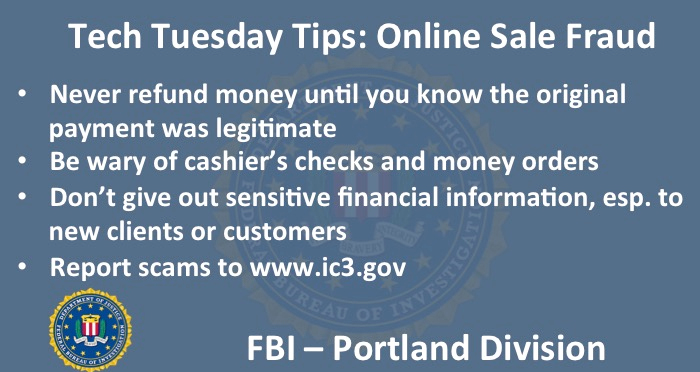In Oregon, we’ve been seeing this particular scam get reported more and more lately. A business receives a request for service or a large order for products. We’ve seen law firms, credit collectors and even bail bonds companies be targeted in this scam… but really, it could happen to any business.
The fraudster puts down a large sum of money – often in the amount of $99,000 – as a retainer or payment with the victim firm or company. The payment usually comes in the form of a check. The business deposits the money… and, wouldn’t you know it, the fraudster cancels the deal the next day.
The victim company either returns the entire amount or takes out a small, non-refundable deposit and sends back the rest. Eventually, the bank discovers the original check was bogus and comes back after the victim company for restitution. In the end, the scam artist walks away with tens of thousands of dollars, and the company is out almost $100,000.
Here’s how to protect yourself:
Never refund money to a potential or former client until you confirm with the bank that the original payment was legitimate.
Be wary of cashier’s checks and money orders, as they can be forged.
Don’t give out sensitive information about the financial institutions you use, especially to those who claim to be new clients or buyers.
Check to make sure that the person or business you are dealing with is real. Do online research, call the company at a publicly-available number to authenticate the transaction or check trusted references before doing business. You want to ensure that the person or business you are dealing with is not pretending to be someone or something they are not.
If you have been victimized by an this online scam or any other cyber fraud, be sure to report it to the FBI’s Internet Crime Complaint Center at www.ic3.gov or call your local FBI office.





